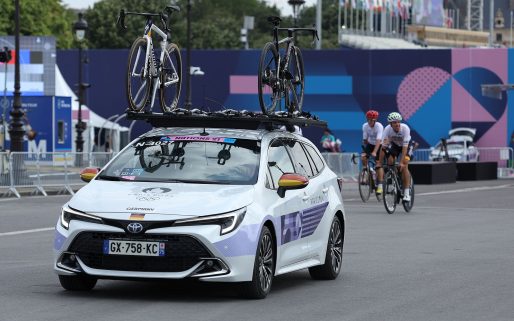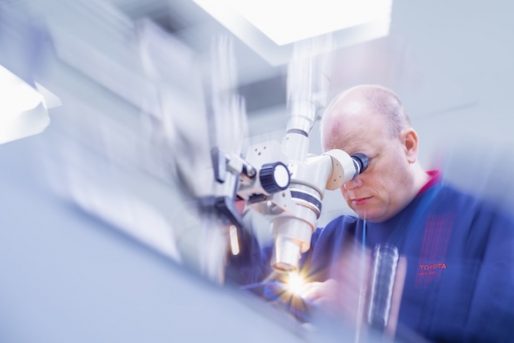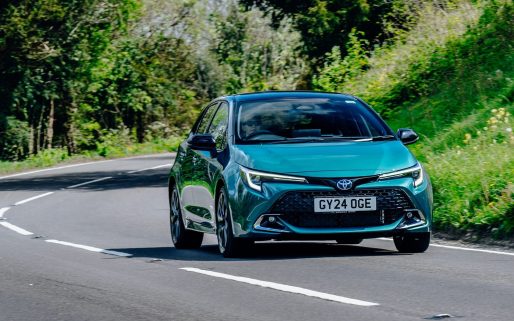New research into the standardisation and commercialisation of replaceable and rechargeable cartridge batteries has been announced by Commercial Japan Partnership Technologies Corporation (CJPT) and Yamamoto Transport. In essence, the research will assess the viability of an ‘EV battery swap’ for commercial electric vehicles, reducing the amount of time these vehicles spend off the road.
CJPT was launched by Toyota Motor Corporation with Isuzu Motors and Hino Motors in March 2021 and has since been joined by Suzuki and Daihatsu.
One of the principal challenges presented by commercial battery electric vehicles (BEVs) is recharging that takes longer than the refuelling time for conventional petrol and diesel vehicles. This causes an increase in logistics downtime, when vehicles and cargo are at a standstill, a challenge that a so-called EV battery swap could alleviate.
Additionally, the introduction of commercial BEVs is expected to create a potential increase in peak electricity demand at business sites when numerous vehicles are being recharged at the same time.
To solve these issues, CJPT and Yamamoto Transport will begin studying the practical application of detachable and portable cartridge batteries, based on a series of potential benefits:
- Reducing the cost of introducing BEVs: costs can be reduced by limiting battery capacity to match actual driving range requirements. This could also reduce the total amount of batteries required.
- Reducing the requirement for recharging infrastructure.
- Reducing logistics downtime.
- Levelling off electricity demand: replacement batteries can be recharged while vehicles are in operation, reducing peak power demand.
CJPT intends to advance plans for commercial BEVs that can be powered by cartridge batteries. The company believes that the development of common-specification cartridge batteries and recharging systems for a range of commercial vehicles, from minivans to light-duty trucks, will reduce their cost and encourage their widespread use. The company is also looking at ways of matching battery use to actual operational requirements to produce an efficient energy management solution.
Yamamoto Transport aims to build a green delivery ecosystem that includes its transport and delivery partners, working with communities to co-create an electricity utilisation scheme based on the use of cartridge batteries.
In addition to promoting the use of green power by eliminating the gap between renewable energy generation peaks and the timing of commercial BEV recharging, the company also intends to study ways of increasing the resilience of electric energy supply communities. This could include, for example, the delivery of cartridge batteries to disaster zones where access to the power infrastructure is compromised.
The two companies are open to considering collaboration with new partners on the standardisation and commercialisation of cartridge batteries, helping popularise electrified vehicles and thus contributing towards the achievement of a carbon-neutral society.
Read more: Toyota’s hybrid and electric vehicles for business





2022_Aug. At this time in the UK the cheapest source of electricity is the home supplier. Charging on an Octopus GoFast plan brings the cost per kWh down to around 7.5p per kWh. Commercial vehicle owners will not want to charge on the road and prefer overnight charging: this dictates the requirements for larger batteries in commercial vehicles even though their journeys might not be that far. Swappable batteries like Nio’s cars is a very good solution and their can be re-used to store electricity for homes and businesses. Make the connectors, size etc compatible for home-business storage as well as the car. Ideally more home will have Solar PVs fitted due to the energy crisis. Toyota should start selling home solutions for batteries today as a package. Link the energy requirements with the home-car-business and you will make money and better your reputation for only pushing Hybrid-Hydrogen solutions. But build better BEV cars today: with 800 volt systems for supper fast charging, longer range, PVs on the roof-bonnet of the cars and more reliable wheel mounts.